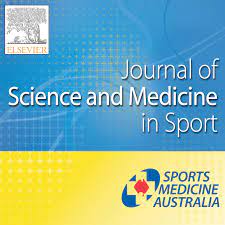Abstract
Objectives: To assess whether the King-Devick (K D) test is useful as a prognostic test for prolonged concussion symptoms by examining the relationship between a) change in performance on K D test from baseline to within two days post-injury and b) the absolute K D time at post-concussion testing, with an outcome of time to return to play (RTP).
Design: Prospective Cohort Study. Methods: Collegiate varsity athletes in the Concussion Assessment, Research, and Education (CARE) Consortium completed baseline and post-injury King-Devick tests from 2014 to 2018. Two exposures were evaluated: 1) change in K D score from baseline to within two days post-injury and 2) absolute K D score within two days post-injury, adjusted for baseline K D. We used Cox proportional hazards models to analyze the relationships between these exposures and time to RTP post-concussion.
Results: A total of 309 concussion injuries were included. Median baseline K D score was 40.0 s (IQR: 35.8, 45.2). Median post-injury K D score was 45.8 s (IQR: 39.8, 57.1). Median number of days until RTP in this cohort was 11 (IQR: 8, 17). Post-injury K D score adjusted for baseline K D had a stronger association with time to RTP duration (HR: 0.99 (0.98, 1.00), p = 0.03) than the difference in K D score from baseline to post-injury (HR: 0.99 (0.99, 1.00), p = 0.07).
Conclusion: Higher post-injury K D scores are associated with longer RTP. The association between K D post-concussion test and longer RTP warrants further investigation to assess the utility of the K D for prognostication in a clinical setting.
Summary Points:
- CARE Consortium funded by NCAA and Department of Defense (DOD).
- Actual post-injury K-D scores may be useful as a means for predicting likelihood of prolonged Return To Play, without the need for baseline value.
- The King-Devick test may be useful as an objective prognostic tool for predicting prolonged recovery following concussion.
- Identifying risk for prolonged post-concussion symptoms would provide an opportunity for targeted early intervention to improve recovery time.
- K-D takes only minutes to administer and can be completed by an individual without complex training.

